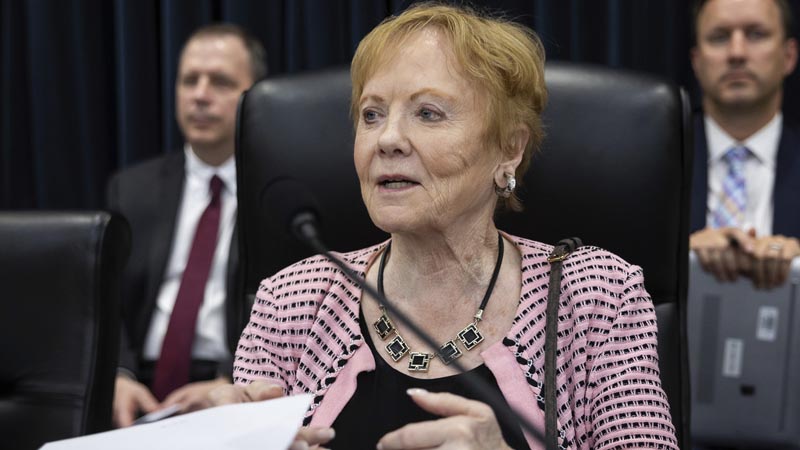“Immigration Falls in Importance”: Alyssa Farah Griffin Says GOP Lost Key Issue as Voters Shift Focus

Lou Rocco/Getty Images
Former Trump administration communications aide Alyssa Farah Griffin sees a surprising trend in the 2024 exit polls: the Republican Party missed a major opportunity with one of their cornerstone campaign issues—immigration. Griffin, now a CNN commentator, discussed the data on a panel Tuesday evening as exit poll results trickled in, noting that immigration ranked lower among voter priorities than it had in polling throughout much of the campaign.
“I’m … surprised immigration has gone down in its significance of top issues, which was one and two for most of this race,” Griffin remarked. “And I have to wonder whether that’s because Donald Trump led on it for so long, but I think Kamala Harris was able to negate some of that steam by saying that she would have signed the border bill.”
Griffin believes Harris’ messaging on immigration, particularly her reminders to voters about Trump’s alleged efforts to block a bipartisan border security bill, may have resonated more strongly with the electorate than expected. This stance allowed Harris to counterbalance Trump’s traditional hold on the immigration issue by suggesting that she also values border security, albeit with a different approach. Harris’ support for the border bill likely conveyed to voters that both candidates cared about the issue, framing it more as a matter of differing methods than of disregard.
“That may have resonated with voters,” Griffin continued. “That there are two candidates that care about this issue; they simply have different approaches.” Griffin’s analysis suggests that Harris’ strategy of shifting focus from the specifics of immigration enforcement to the bipartisan efforts Trump opposed helped neutralize one of the GOP’s historically strongest topics.

In addition to immigration, exit polls indicate another setback for Trump: his messaging on the economy, traditionally a cornerstone of Republican platforms. Trump had initially led among voters on economic issues, but according to exit data, this advantage had eroded, leaving the economy a near tie between the candidates. Griffin and other analysts attribute this shift to Trump’s emphasis on tariffs as a solution to economic challenges, a policy that economists broadly warn could lead to price increases for consumers. The focus on tariffs, a trade strategy often touted by Trump, appears to have weakened public confidence in his ability to tackle inflation effectively.
With rising prices and inflation concerns top of mind for voters, the tariff-focused approach may have undermined Trump’s economic message. Voters, seeing the potential for higher costs associated with tariffs, may have questioned whether Trump’s economic plans would actually alleviate the inflationary pressures they face. This misstep, combined with the lost momentum on immigration, suggests that the Republican campaign missed crucial opportunities to solidify support among voters.
Griffin’s commentary highlights a broader issue within the GOP’s 2024 campaign strategy: the party’s reliance on traditional talking points may not have been sufficient to address voters’ concerns as effectively as expected. By failing to adapt their immigration and economic messaging to the nuanced needs of the electorate, Republicans may have weakened their appeal on topics historically advantageous to them.
As the election results continue to come in, it remains clear that both immigration and the economy played pivotal roles in shaping voter sentiment, but perhaps not in the way the GOP anticipated. For Republicans, Griffin’s analysis may serve as a lesson on the importance of evolving messaging in response to voter concerns, especially on issues that have historically anchored their platform.


